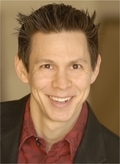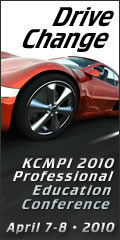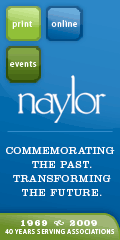| Past Issues/Subscribe | Printer-Friendly | Advertise | KCMPI.ORG |

How to Increase Attendance at Your Next Event by Don CooperWhether you're planning a monthly meeting, a public seminar or an international convention, you want to have as many attendees as possible. The more people you have at your meeting, the more exposure your sponsors receive, the more value your attendees derive from networking and the more likely you are to fill your room block. Not to mention the more revenue you generate from registrations! So how can you increase attendance at your next event (without spending a fortune on marketing or breaking your budget on a big-name celebrity speaker)? Just follow these guidelines. Select the Right Speakers However, if you want your event to be an overwhelming success, that's not the only criteria, because even if your speakers are amazing on the platform, if their marketing materials don't effectively sell them, you'll never get people to come in the first place. Remember, while you've seen the speaker on stage or on video, your potential attendees haven't. The only thing they will have to form an impression is the speaker's marketing materials. When I say "marketing materials," however, I'm not talking about demo videos. Your members aren't going to judge speakers based on them, so you shouldn't either. Nor am I talking about a speaker's bio. While you'll need to include a brief bio in your event promotional materials to establish the speaker's credibility, most speaker bios go on and on about their accomplishments, their awards and how great they are in general. Guess what? Your potential attendees don't care! They care only about whether the speakers will help them in their lives, jobs or businesses. Their program titles and descriptions. Because this is what your members will primarily use to decide whether or not to attend your event. Are the presentation titles (and sub-titles) attention-grabbing? Are they provocative, timely or enticing? Do they promise a benefit? Are the program descriptions clear and compelling? Do they specify the results participants will be able to achieve? Do they make you think, "I've got to see this!" or do they induce a yawn? Or worse yet, do they cause you to wrinkle your forehead and wonder what the presentation is actually about? If the program descriptions don't excite you, odds are they won't excite your prospective audience either. Also look at the speaker's testimonials, because you can use them in your own promotional efforts. Does the speaker have strong testimonials from attendees? Even better, does he or she have testimonials stating the results attendees have achieved because of the program? Create Marketing Pieces, Not Just Announcements There are more people, tasks, tools and events competing for your prospective audience's time and money than ever before, which means whether you're putting on a teleseminar, a luncheon or a multi-day conference, you must make a compelling case why people need to attend. You have to convince them that your event is the best possible use of their time and money. In other words, you have to create marketing pieces. A marketing piece is a salesperson in print or electronic form. A good marketing piece doesn't just provide logistical information, it persuades people to take action by addressing issues important to them. An effective event marketing piece must have all 12 of the following elements: Many people protest when I tell them all the elements they need to include in their marketing pieces. "That's too much information! Nobody will read all that!" they say. The evidence supports exactly the opposite. Research has proven again and again that, if it's written well, long copy always outperforms short copy. Don't be afraid of writing too much; be afraid of writing too little. If you leave out any of the above items, your registrations will suffer. Want some help crafting effective marketing materials? I've written a special report entitled Power Words for Sales and Marketing. It shows you how to use the most compelling marketing words to create irresistible brochures, fliers, e-mail blasts and more. To get your free copy, just e-mail me at Don@DonCooper.com. Use Several Different Marketing Channels Also, using different media enables you to get your message in front of more people within an organization. For example, your e-mails may go to one person, but your postcard may be seen by another. As you plan your marketing campaign, consider using each of the following:
Market to Your Audience Early and Often For a monthly event, your first marketing push should go out 2½ to 3 weeks beforehand; for a one-time event, at least 3 to 4 months ahead, and for an annual event, your campaign should begin 6 to 9 months in advance. This doesn't mean you have to have all the details set that far ahead of time. Your earliest marketing efforts can be teasers, just mentioning the event and whatever major details you already have confirmed. You can then present the full information later in additional marketing communications. How many times should you market to your prospective audience? For a monthly event, shoot for three to four communications. For a one-time event, six to 10. And for an annual event, 12 to 18. Seem like a lot? It is. It needs to be. Because the more often you hit your potential attendees with your marketing, the more registrations you'll get. Each communication can (and should) be a little different. One marketing piece might highlight the keynote speakers, while another focuses on the concurrent sessions. A third might detail some of the other features and benefits of your event. One could simply be a long list of testimonials. There are lots of good reasons to send out a marketing piece and as you put your mind to it, you'll come up with plenty. Do These Tactics Really Work? Since that time, I've helped various organizations set attendance record after attendance record, in some cases more than doubling their previous year's registrations. Which translates into tens of thousands of dollars in additional revenue. Whether your meeting is local or international in scope, members-only or open to the public, dirt-cheap or big-ticket, these strategies will work for you too. Choose speakers with powerful marketing materials, use them to help create persuasive marketing pieces of your own, use a variety of marketing channels and market early and often. Employ these tactics and watch your registrations soar!
To learn more about how Don can help you set an attendance record at your next event, or to request your free copy of Power Words for Sales and Marketing, call 303-832-4248 or e-mail Don@DonCooper.com. You can also find additional revenue-boosting articles, tips and more at www.DonCooper.com. |
| KCMPI Headquarters P.O. Box 11876 Kansas City, MO 64138 T: 816-668-9424 / F: 816-356-4095 info@KCMPI.ORG / www.KCMPI.ORG |
 |
 Don Cooper—The Sales Heretic™—is an internationally acclaimed sales expert who helps salespeople, business owners and professionals dramatically increase their sales. He delivers custom seminars and keynote speeches for corporations, associations, chambers of commerce and other business organizations.
Don Cooper—The Sales Heretic™—is an internationally acclaimed sales expert who helps salespeople, business owners and professionals dramatically increase their sales. He delivers custom seminars and keynote speeches for corporations, associations, chambers of commerce and other business organizations.
